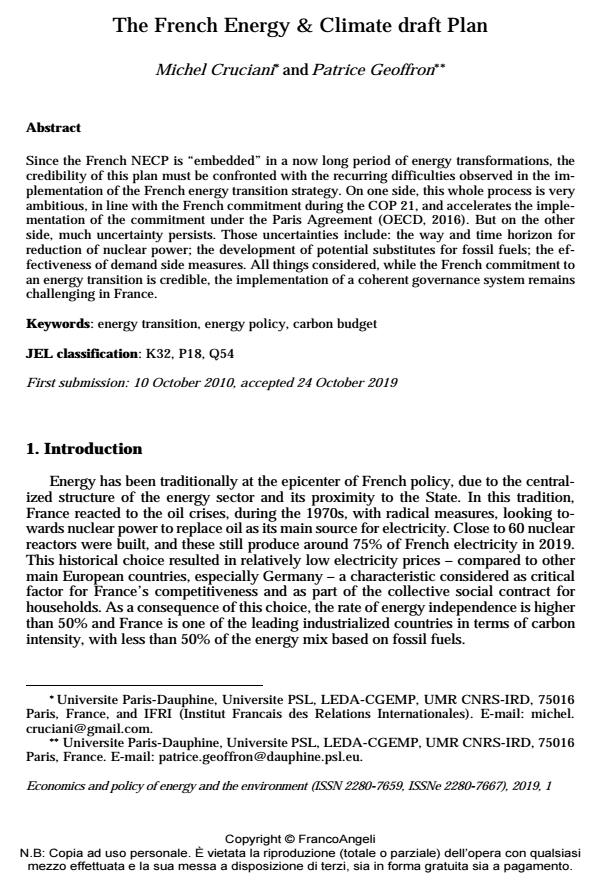The French Energy & Climate draft Plan
Titolo Rivista ECONOMICS AND POLICY OF ENERGY AND THE ENVIRONMENT
Autori/Curatori Michel Cruciani, Patrice Geoffron
Anno di pubblicazione 2019 Fascicolo 2019/1
Lingua Inglese Numero pagine 12 P. 73-84 Dimensione file 119 KB
DOI 10.3280/EFE2019-001005
Il DOI è il codice a barre della proprietà intellettuale: per saperne di più
clicca qui
Qui sotto puoi vedere in anteprima la prima pagina di questo articolo.
Se questo articolo ti interessa, lo puoi acquistare (e scaricare in formato pdf) seguendo le facili indicazioni per acquistare il download credit. Acquista Download Credits per scaricare questo Articolo in formato PDF

FrancoAngeli è membro della Publishers International Linking Association, Inc (PILA)associazione indipendente e non profit per facilitare (attraverso i servizi tecnologici implementati da CrossRef.org) l’accesso degli studiosi ai contenuti digitali nelle pubblicazioni professionali e scientifiche
Since the French NECP is "embedded" in a now long period of energy transformations, the credibility of this plan must be confronted with the recurring difficulties observed in the implementation of the French energy transition strategy. On one side, this whole process is very ambitious, in line with the French commitment during the COP 21, and accelerates the implementation of the commitment under the Paris Agreement (OECD, 2016). But on the other side, much uncertainty persists. Those uncertainties include: the way and time horizon for reduction of nuclear power; the development of potential substitutes for fossil fuels; the effectiveness of demand side measures. All things considered, while the French commitment to an energy transition is credible, the implementation of a coherent governance system remains challenging in France.
Parole chiave:Energy transition, energy policy, carbon budget
Jel codes:K32, P18, Q54
- European Roadmaps to Achieving 2030 Renewable Energy Targets Giacomo Di Foggia, Massimo Beccarello, in SSRN Electronic Journal /2024
DOI: 10.2139/ssrn.4770915 - European roadmaps to achieving 2030 renewable energy targets Giacomo Di Foggia, Massimo Beccarello, in Utilities Policy 101729/2024 pp.101729
DOI: 10.1016/j.jup.2024.101729
Michel Cruciani, Patrice Geoffron, The French Energy & Climate draft Plan in "ECONOMICS AND POLICY OF ENERGY AND THE ENVIRONMENT" 1/2019, pp 73-84, DOI: 10.3280/EFE2019-001005